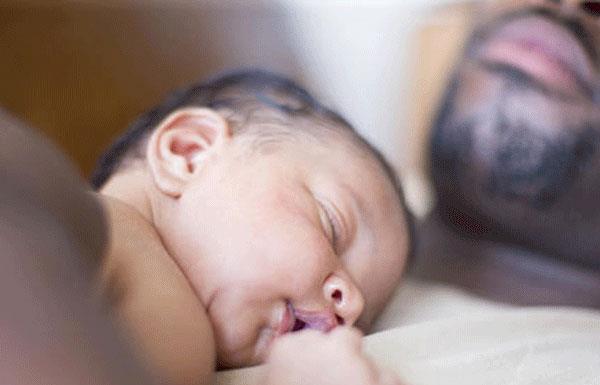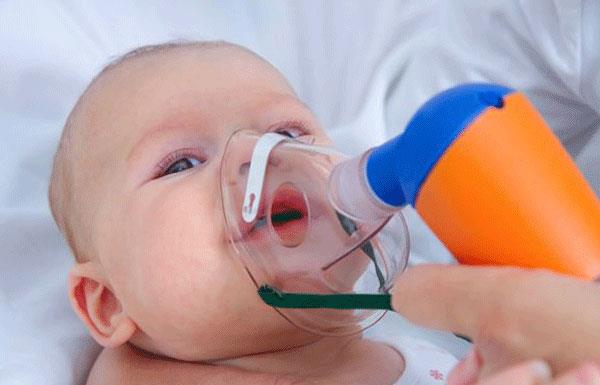Fast breathing in newborns can be a concerning sign for parents. While it might be a normal physiological response, it could also indicate serious respiratory conditions like pneumonia. This comprehensive guide will help you understand, identify, and address newborn breathing issues effectively.
Table of Contents
- Common Causes of Fast Breathing
- Recognizing Warning Signs
- How to Count Breathing Rate
- When to Worry About Fast Breathing
- Sleep and Startle Patterns
- Immediate Actions for Rapid Breathing
Common Causes of Fast Breathing
Newborns have an immature respiratory system that's still developing. Key factors contributing to fast breathing include:
| Cause |
Description |
| Nasal Congestion |
Babies primarily breathe through their nose, and congestion can lead to faster breathing |
| Immune System |
Underdeveloped immunity makes babies more susceptible to respiratory infections |
| Sleep Position |
Improper sleeping positions can affect breathing patterns |

Recognizing Warning Signs
Be alert for these critical signs of respiratory distress:
- Breathing rate > 60 breaths/minute (under 2 months)
- Breathing rate > 50 breaths/minute (2-11 months)
- Chest indrawing during inhalation
- Bluish discoloration around lips and face
- Persistent wheezing or grunting
How to Count Breathing Rate
Follow these steps for accurate breathing rate measurement:
- Place baby in a calm, relaxed state
- Gently lift the shirt to observe chest movement
- Count each breath (chest rise) for one minute
- Repeat 2-3 times for accuracy
When to Worry About Fast Breathing
Seek immediate medical attention if you notice:
| Symptom |
Possible Condition |
| Thoracic vibrations |
Respiratory distress |
| Nasal flaring |
Laryngeal dyspnea |
| Chest retractions |
Pneumonia |

Sleep and Startle Patterns
Newborns may experience:
- Brief startles during sleep (normal up to 3-4 months)
- Apnea episodes lasting <10>
- Increased breathing rate during sleep
Immediate Actions for Rapid Breathing
When your baby shows rapid breathing:
- Maintain regular breastfeeding
- Ensure proper hydration (for babies >6 months)
- Monitor for color changes (pale or blue lips)
- Seek immediate medical attention for severe symptoms

For more information on related topics, visit our article on "Night Terrors" Syndrome in Children.















Emily Johnson -
omg, fast breathing in newborns is super scary! when my nephew had this, we rushed to the pediatrician and it turned out to be a minor respiratory issue. always better to check!
Lucy Nurse -
Professional insight: always better to be cautious when it comes to newborn health
Medical Watch 2 -
Early detection and professional medical advice are crucial in managing potential respiratory issues in newborns.
Sophie Care -
quick reminder: not all fast breathing means pneumonia! but always better to get professional advice
Rachel Mom -
my pediatrician taught me to count breaths when i'm worried. super helpful technique for new parents!
Dr. Mike 2023 -
As a pediatrician, I always recommend parents monitor their newborn's breathing patterns. Rapid breathing can be a sign of various conditions, including potential pneumonia. Don't hesitate to consult a healthcare professional
Mike Pediatric -
Comprehensive guide to understanding newborn respiratory health. Every parent should read this!
Medical Info -
Pneumonia in newborns can be serious. Early detection and treatment are crucial for preventing complications
Tom Pediatric -
Comprehensive guide to understanding newborn respiratory health. Highly recommended for all parents!
Medical Watch -
Important signs of potential respiratory issues in newborns: rapid breathing, chest retractions, nasal flaring, and unusual sounds.
Jake Runner -
quick question - what exactly counts as "fast" breathing for a newborn? asking for a friend with a 3-week-old
David Dad -
when my daughter was born, we were paranoid about every little thing. turns out, that's pretty normal for first-time parents!
Lisa Mom -
omg, this happened to my cousin's baby. turned out to be a minor infection, but scary moment!
Tom Health -
Respiratory issues in newborns can be tricky. Always consult professionals and don't rely solely on internet advice
Emma Nurse 2 -
Respiratory rate in newborns can vary. Normal range is 30-60 breaths per minute. Anything consistently outside this range needs medical evaluation.
Alex Health -
Wow, this article is so informative! never knew how complex newborn breathing could be. knowledge is power, right?
Parent Helper -
Pro parent hack: take a video of your baby's breathing if you're concerned. helps doctors understand what you're seeing
Emily Support -
You've got this, parents! Stay informed, stay calm, and trust the professionals
John Pediatric -
Comprehensive explanation about newborn breathing patterns and potential respiratory risks. Parents should stay informed but not panic
Mike Dad -
Been there, done that! Parenting is a wild ride, especially with health concerns
Emma Mom -
this article is a lifesaver! so much helpful information for new parents
Lucy Mom -
been through this twice. sometimes it's nothing, sometimes it's something. always trust your gut and get checked
Sarah Care 2 -
quick reminder: document any concerns for your pediatrician. details matter
Jake Pediatric -
Not all fast breathing indicates serious issues. But always better to get professional medical advice
Sarah Mom -
been there! my little one had fast breathing when he was 2 weeks old. turned out to be nothing serious, but always trust your parental instincts
Dad Support -
Hang in there, new parents! These worries are totally normal. You're doing great just by being attentive
Medical Insight -
Understanding newborn respiratory patterns can help early detection of potential health issues.
Sarah Care -
quick tip: keep track of other symptoms like fever, cough, or unusual tiredness alongside fast breathing
Emily Nurse -
Detailed breakdown of potential respiratory concerns in newborns. Knowledge is the first step in good infant care
Mark Science -
Fascinating how complex newborn respiratory systems are. Each breath tells a story about their health!
Health Guide 2 -
Detailed breakdown of potential respiratory concerns. Knowledge empowers parents!
Parent Helper 2 -
Remember: every baby is different. What's normal for one might not be for another. Professional guidance is key
Sophie Care 2 -
Newborn health is complex. This article provides great insights for worried parents
Nurse Emma -
Important signs to watch: over 60 breaths per minute, chest retractions, bluish lips. These could indicate respiratory distress and need immediate medical attention.
John Care -
Informative article that helps demystify newborn respiratory health. Great resource for parents!
Tom Dad -
pneumonia is no joke in newborns. we learned the hard way. always better to be safe than sorry
David Health -
Fascinating how intricate newborn health can be. Always learn something new
Lisa Health -
Respiratory infections can develop quickly in newborns. Key tip: keep track of breathing rate, temperature, and any additional symptoms
Rachel Nurse -
Pro tip: keep a calm environment and monitor your baby's breathing. Stress doesn't help anyone!
Health Guide -
Comprehensive overview of newborn respiratory health. Every parent should be informed and observant
Baby Care 101 -
Pro tip: newborns naturally have faster breathing rates. But if it seems unusually rapid or accompanied by other symptoms, consult a pediatrician